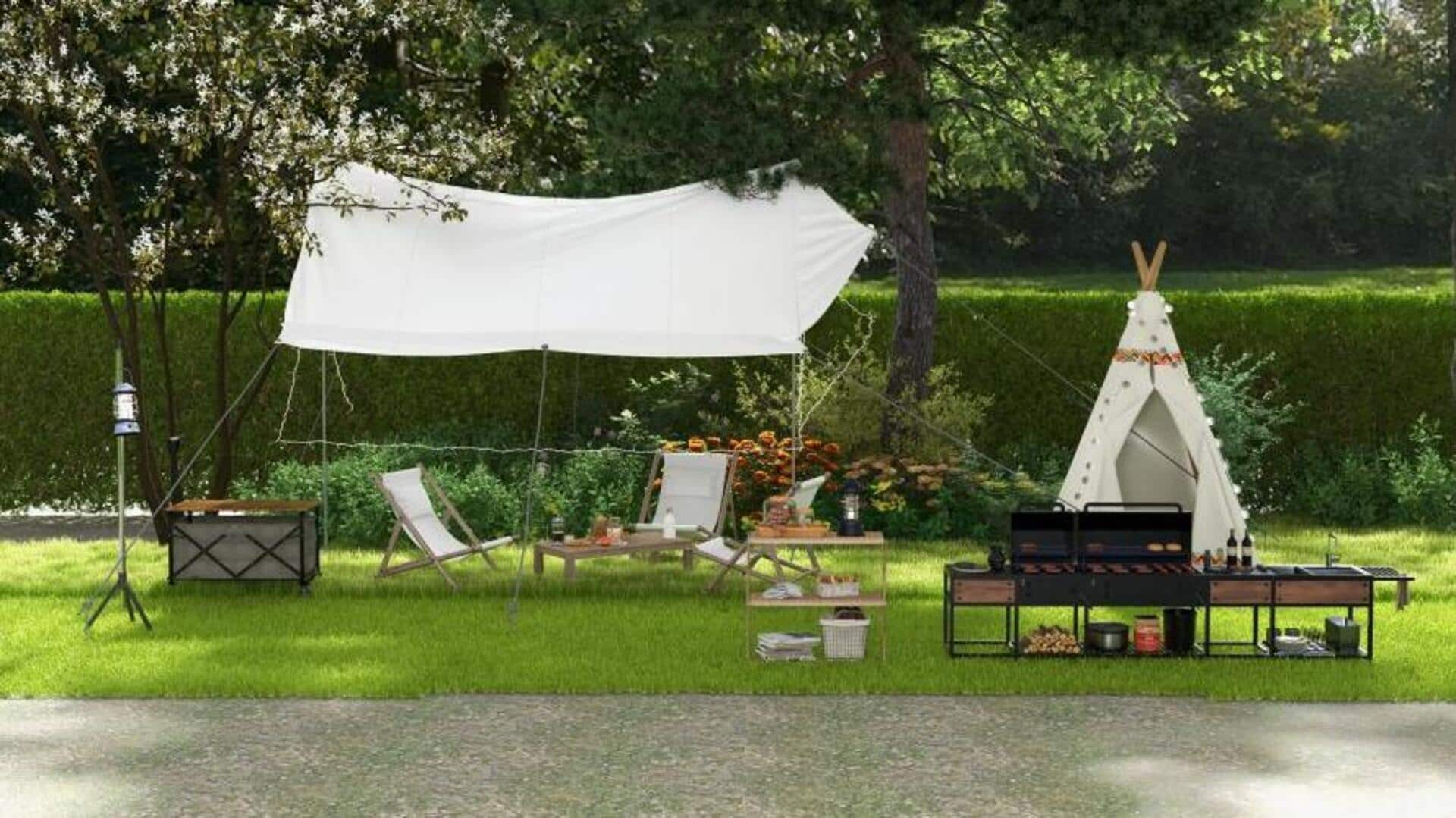Planning a sustainable backyard campout like a pro
What's the story
A backyard campout provides the ideal balance of adventure and comfort, letting you experience the beauty of nature without venturing far from home.
Planning a sustainable campout further enhances the experience by reducing environmental impact and fostering a sense of eco-friendly stewardship.
This article offers practical advice on planning a green backyard camping experience that's not only fun, but also kind to the planet.
Gear up
Choose eco-friendly camping gear
Choosing sustainable camping gear is the foundation of an eco-friendly campout.
Seek out tents, sleeping bags, and other necessities crafted from recycled materials or those with a low environmental impact.
Numerous brands now prioritize durability and sustainability in their designs.
Spending a bit more on quality eco-friendly gear results in less waste over time, as these items outlast cheaper alternatives.
Illuminate sustainably
Utilize solar-powered lights
Solar-powered lights: Ditch the battery-operated or electric lights and opt for sustainable solar-powered options instead.
They charge during the day and provide plenty of light at night, all without using up any non-renewable energy.
You can choose from a variety of options, including lanterns and string lights, to create the perfect atmosphere for your eco-friendly backyard campout.
Waste not
Minimize waste with reusable items
One of the most important parts of planning a green campout is reducing waste.
Use real plates, cups, utensils, and containers instead of disposable ones.
This not only cuts down on the amount of garbage produced during your campout, but it also saves money in the long run.
Have everyone bring their own reusable water bottles to further reduce plastic waste.
Fun and green
Plan eco-friendly activities
Responsible camping isn't only about packing the right stuff; it's also about planning eco-friendly fun.
Choose low-impact activities like nature walks (remember, the goal is to observe critters, not disturb them), stargazing (use apps instead of printed guides to save paper), or storytelling around a small fire pit.
Just make sure to use responsibly sourced wood, or better yet, skip the fire altogether if the area is dry or fire-prone.
Respect nature
Leave No Trace Principles
Following Leave No Trace principles means your backyard stays just as beautiful after your campout as it was before.
This involves packing out all trash, not digging trenches or building permanent structures that alter your yard, and respecting wildlife by keeping noise down and not feeding critters human snacks (it's bad for their health!).
